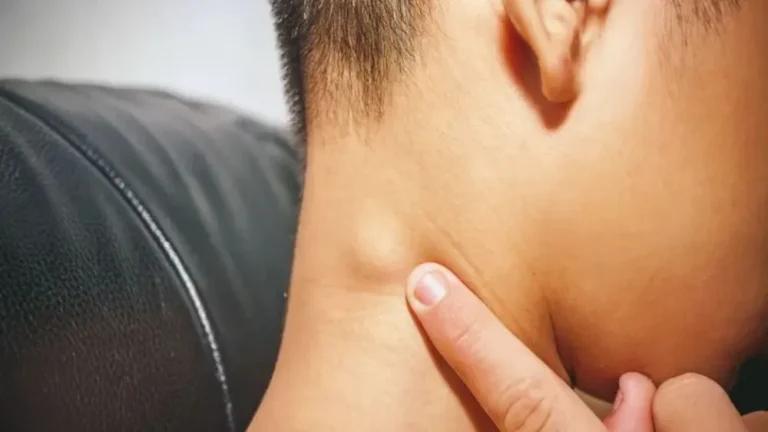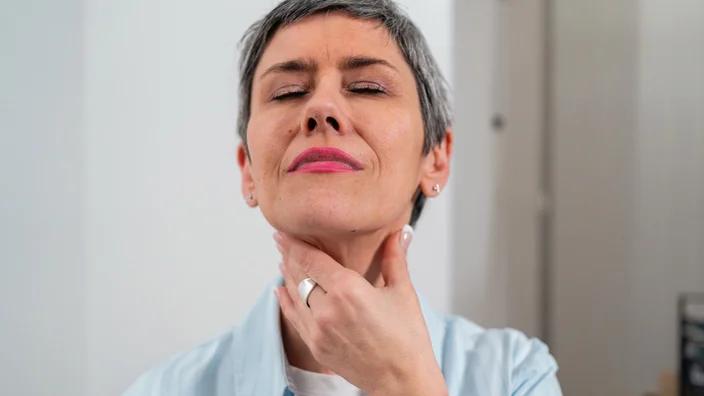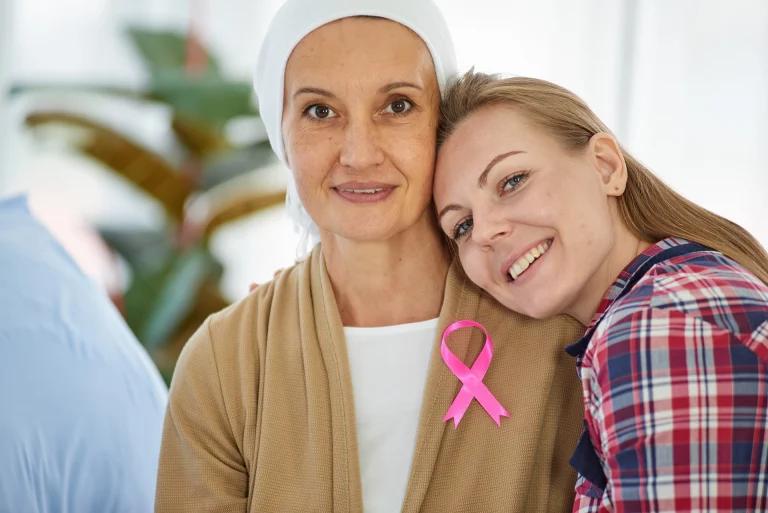

December 22, 2025 (Current Version)
March 28, 2025
In 2020, it was estimated there were 18.1 million new cases of cancer worldwide according to Cancer Research UK statistics. The four most common cancers being lung, bowel, female breast and prostate cancers. Lymphoma does not feature in the top four cancers, but it is still a serious cancer, just like any other cancer. The outlook for a person with lymphoma depends on the stage and type of lymphoma they have. Many types of lymphoma are treatable and highly curable. Lets take a deeper look into this type of cancer.
📝 The lymphatic system
The lymphatic system operates as part of the body’s immune system, which protects against infection and disease. White blood cells (lymphocytes) are an important part of your immune system to fight infection.
The lymphatic system also maintains fluid balance, aids in digestion and acts as your body’s natural detox system by clearing out waste and toxins. The lymphatic system includes the spleen, thymus, lymph nodes and lymph channels, as well as the tonsils and adenoids. The six lymphatic points in the body include the:
- Collar bone (both sides)
- Behind the angle of your jaw
- Shoulder joint/armpit region
- Abdomen
- Groin area
- Behind your knees
📝 How lymphoma develops
Lymphoma develops when white blood cells grow out of control, multiplying, dividing and building up. These abnormal cells or cancer cells stop your body from making normal, healthy cells, preventing organs in your body from working properly. The abnormal cells might spread to other areas of your body and start growing there too.
There are two main types of lymphoma:
- Hodgkin’s lymphoma. Classic Hodgkin lymphoma is the most common form of this disease, typically starting above the diaphragm in the neck, armpits, or chest. It usually spreads predictably and is diagnosed at early stages
- Non-Hodgkin’s lymphoma. There are more than 60 different sub types of non-Hodgkin lymphoma and it is highly unpredictable. The two most common subtypes of non-Hodgkin lymphoma are diffuse large B-cell lymphoma and follicular lymphoma
📈 Rate of lymphoma progression
Lymphoma is curable in its early stages, but there is an increased risk as the stage of diagnosis increases (more advanced).
Staging
The tests and scans you have when you are diagnosed help doctors to work out the stage of your lymphoma. This helps your oncologist and medical team plan the most appropriate treatment for you.
- Stage 1 – A single group of lymph nodes affected anywhere in the body
- Stage 2 – Two or more groups of lymph nodes affected (on the same side of the diaphragm)
- Stage 3 – Two or more groups of lymph nodes affected (on both sides of the diaphragm)
- Stage 4 – lymphoma that has spread to at least one body organ outside the lymphatic system e.g. bone marrow, liver, intestine
Aggressive or indolent
The rate of lymphoma progression can be defined as aggressive (fast growing) or indolent (slow growing or low grade). If the cancer progression falls between indolent and aggressive, it is referred to as intermediate-grade.
Aggressive lymphoma tends to be more serious as it grows more quickly and produce more symptoms than indolent lymphomas. The most common subtypes of aggressive lymphoma are:
- Diffuse large B-cell lymphoma (DLBCL)
- Anaplastic large-cell lymphoma
- Acquired immune deficiency syndrome (AIDS)-associated lymphoma
- Burkitt lymphoma
- Central nervous system (CNS) lymphoma
- Lymphoblastic lymphoma
- Mantle cell lymphoma (MCL)
- Peripheral T-cell lymphoma (PTCL)
- Transformed follicular and transformed mucosa-associated lymphoid tissue (MALT) lymphomas
The most common subtypes of indolent NHL are:
- Follicular lymphoma (FL)
- Cutaneous T-cell lymphoma (mycosis fungoides and Sézary syndrome)
- Lymphoplasmacytic lymphoma/Waldenström macroglobulinemia
Aggressive and indolent lymphomas may be treated differently.
🤕 Symptoms of Lymphoma
- Swollen lymph nodes: These painless swellings usually have a smooth rubbery feel and move easily under the skin when pressed. This is the most common symptom of lymphoma and you will probably be asked to have a biopsy of the swollen gland
- Fatigue: Unlike normal sleepiness or tiredness this kind of exhaustion can’t be relieved by a nap or a goodnights sleep
- Night sweats: Some people with lymphoma wake up with their sheets soaked from drenching night sweats. Sometimes you will sweat heavily during the daytime too
- Weight loss: A couple of kilograms of loss isn’t significant, but you may lose anywhere close to 10% of your body weight over the course of several months without trying
- Fever: Lymphoma cells release substances that can increase body temperature, leading to a low fever that may come and go
❗ Risk factors for lymphoma
In general lymphoma is a treatable form of cancer. With any cancer however risk factors determine survival rates:
- The type of lymphoma
- The stage of the cancer
- A patient’s age. Some types of lymphoma are more common in teens and young adults
- A patient’s general health and underlying medical conditions
- Family history of lymphoma
- Previous exposure to the Epstein-Barr virus
- Treatment decisions
- The level of lactate dehydrogenase (LDH) in the body. This is an enzyme that will typically increase as the amount of lymphoma increases
🧪 Diagnosis of lymphoma
Physical examination, biopsies, blood tests and imaging tests such as PET scans, CT scans, chest X-rays and MRI scans are all tools used by healthcare professionals to see where the lymphoma is in the body.
💉 Lymphoma treatment
Different types and stages of lymphoma respond to different treatments. Some treatment options include:
- Chemotherapy. Oral or IV medication that targets and kills cancerous cells. It can be used as a stand alone cancer treatment or combined with radiation therapy and biological therapy
- Radiation therapy/Radiotherapy. Commonly used for early stage cancer where a localised source of lymphoma has been found. It uses high energy beams to kill cancer cells
- Immunotherapy. This therapy uses monoclonal antibodies to change immune cells in your system to help fight the cancer cells
- Bone marrow transplants
- Other methods of treatment, including a stem cell transplant, alternative drugs, or drug combinations
Discussions about your treatment plan will usually take place with several doctors and other healthcare professionals who specialise in different aspects of cancer care. Side effects, age and general health will be taken into consideration.
📝 Conclusion
Whether you are someone with lymphoma or a carer for someone with cancer, there are people and support services who can talk you through it, offer support, or simply listen during this time. Your healthcare provider can also provide information on all aspects of lymphoma and clinical trials, looking at potential treatments.
Sources
- Worldwide cancer statistics – Cancer Research UK
- Stages of non-Hodgkin lymphoma – Cancer Research UK
- Stages of Hodgkin Lymphoma – Cancer Research UK
- Lymphoma: Symptoms, Causes and Treatment
- Hodgkin lymphoma – NHS
- Non-Hodgkin lymphoma – NHS
- About Cancer – Cancer Research UK
Medical Disclaimer
NowPatient has taken all reasonable steps to ensure that all material is factually accurate, complete, and current. However, the knowledge and experience of a qualified healthcare professional should always be sought after instead of using the information on this page. Before taking any drug, you should always speak to your doctor or another qualified healthcare provider.
The information provided here about medications is subject to change and is not meant to include all uses, precautions, warnings, directions, drug interactions, allergic reactions, or negative effects. The absence of warnings or other information for a particular medication does not imply that the medication or medication combination is appropriate for all patients or for all possible purposes.








